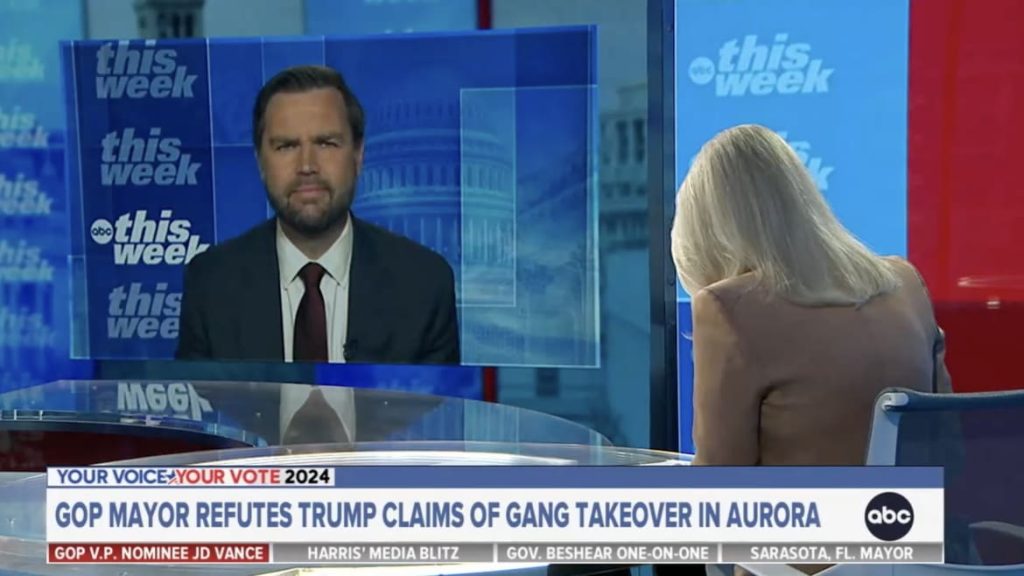In a recent interview on This Week, author JD Vance struggled to defend Donald Trump’s false claims about migrant issues in Aurora, Colorado. Trump had made inflammatory statements about the city being “conquered” by Venezuelan gangs, which were disputed by the city’s Republican mayor. When pressed on whether he supported Trump’s rhetoric, Vance attempted to deflect by focusing on semantics, suggesting that there must be some truth to Trump’s statements since the mayor acknowledged they were exaggerated.
However, host Martha Raddatz pushed back, pointing out that the mayor had clarified that Trump’s claims were grossly exaggerated and had harmed the city’s reputation. She explained that police had only found a few issues related to gangs in Aurora and that they had been addressed by city officials. Vance continued to argue semantics and criticize Raddatz for scrutinizing Trump’s words, but she refused to let him dodge the issue. Ultimately, she decided to end the discussion by stating unequivocally that Trump’s claims about the city being invaded or taken over by gangs were false.
Vance’s attempts to defend Trump’s misleading statements were met with skepticism by Raddatz, who emphasized the importance of accuracy in public discourse. She refused to let Vance redirect the conversation away from the fact that Trump’s claims were not supported by the facts on the ground in Aurora. Despite Vance’s efforts to twist the narrative in Trump’s favor, Raddatz remained focused on the truth and held him accountable for his attempts to obfuscate the issue.
The exchange between Vance and Raddatz highlighted the challenges of addressing misinformation and inflammatory rhetoric in political discourse. Vance’s reliance on semantics and attempts to shift the focus away from Trump’s false claims underscored the difficulties in holding public figures accountable for spreading false information. Raddatz’s insistence on factual accuracy and her refusal to let Vance evade the issue demonstrated the importance of challenging misleading statements and ensuring that public discourse is based on truth and evidence.
Overall, the interview showcased the ongoing struggle to combat misinformation and hold politicians accountable for their words. By refusing to let Vance off the hook and insisting on the truth, Raddatz underscored the importance of fact-checking and challenging misleading narratives. In an era of rampant misinformation, it is crucial for journalists and media professionals to push back against falsehoods and uphold the principles of accuracy and truth in public discourse.













